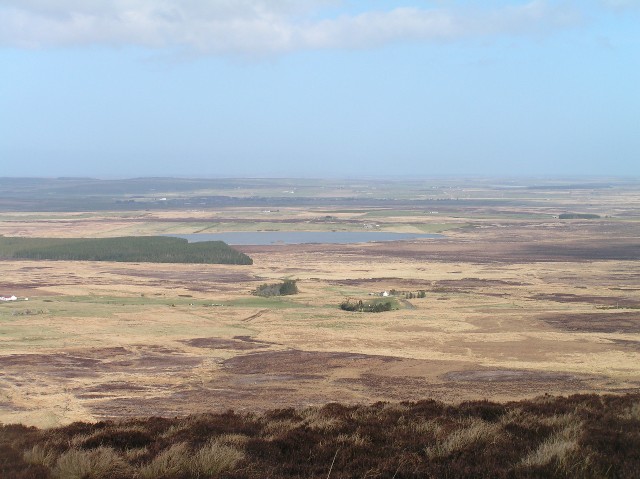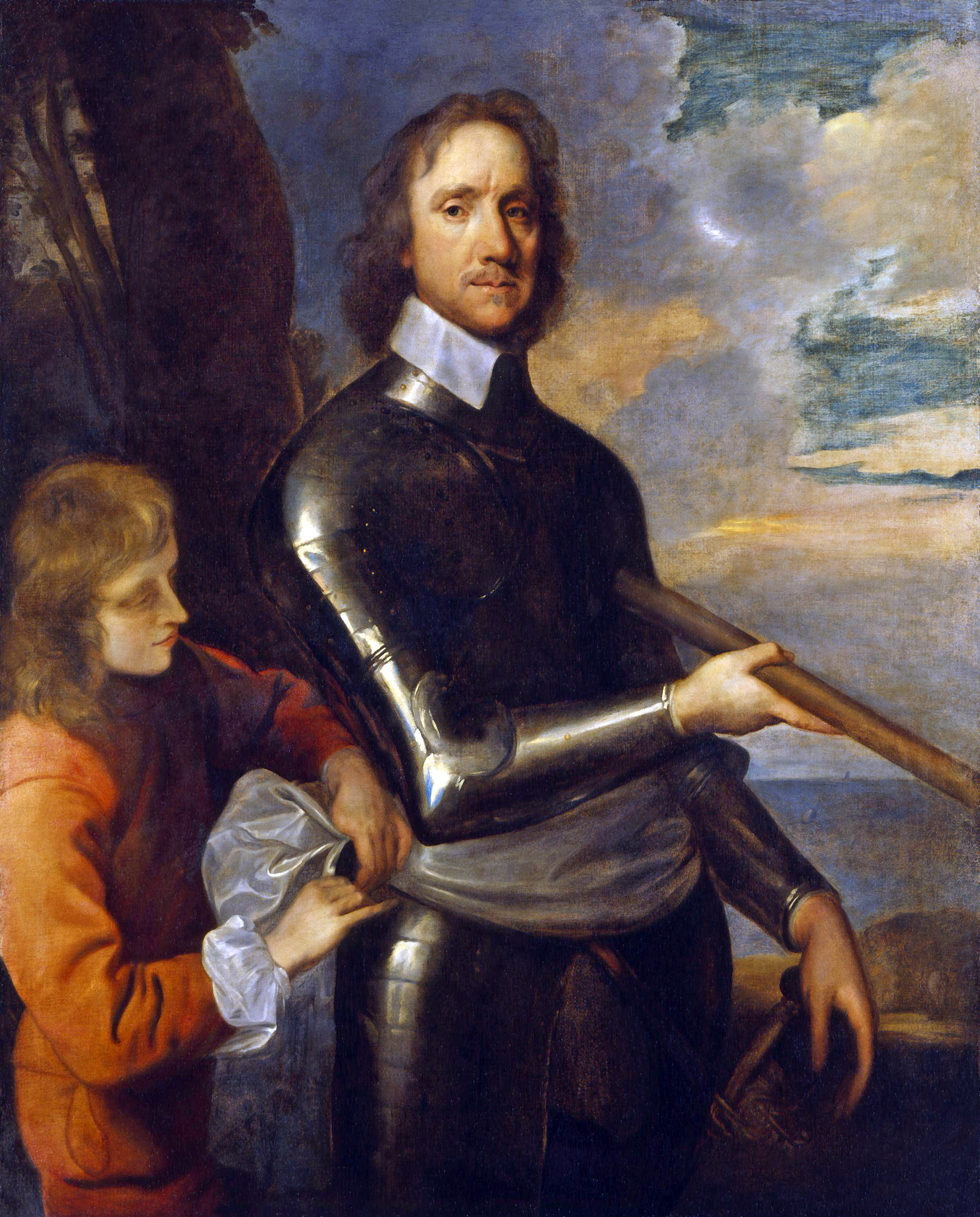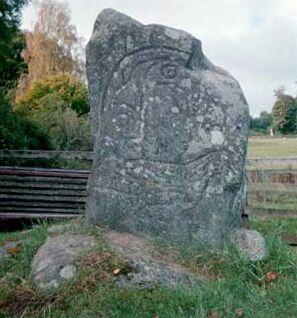|
Benedict Munro, Baron Von Meikeldorf
Sir Benedict Munro, Baron von Meikeldorf was a Scottish soldier of the English and Scottish Civil War who settled in Germany during the mid 17th century. Munro, James Phinney. (1900). ''A Sketch of The Munro Clan, also of William Munro who deported from Scotland settled in Lexington, Massachusetts, and some of his Posterity''. Published in Boston. pp. 19 - 21. He is believed to have been born between 1615 and 1630. Benedict was the youngest son of Robert Munro, Commissary of Caithness, who in turn was the third son of John Mor Munro, 3rd of Coul, a descendant of George Munro, 10th Baron of Foulis. Mackenzie, Alexander. (1898). ''History of the Munros of Fowlis''. pp. 342–347. Benedict was in the prime of his life when he fought in the royalist army at the Battle of Worcester in 1651 against the army of Oliver Cromwell. The royalists were defeated, however Benedict escaped to Germany. He grew to become Baron Benedict von Meikeldorf, lord of a petty German dukedom, the like of whic ... [...More Info...] [...Related Items...] OR: [Wikipedia] [Google] [Baidu] |
Scotland
Scotland (, ) is a country that is part of the United Kingdom. Covering the northern third of the island of Great Britain, mainland Scotland has a border with England to the southeast and is otherwise surrounded by the Atlantic Ocean to the north and west, the North Sea to the northeast and east, and the Irish Sea to the south. It also contains more than 790 islands, principally in the archipelagos of the Hebrides and the Northern Isles. Most of the population, including the capital Edinburgh, is concentrated in the Central Belt—the plain between the Scottish Highlands and the Southern Uplands—in the Scottish Lowlands. Scotland is divided into 32 administrative subdivisions or local authorities, known as council areas. Glasgow City is the largest council area in terms of population, with Highland being the largest in terms of area. Limited self-governing power, covering matters such as education, social services and roads and transportation, is devolved from the Scott ... [...More Info...] [...Related Items...] OR: [Wikipedia] [Google] [Baidu] |
Germany
Germany,, officially the Federal Republic of Germany, is a country in Central Europe. It is the second most populous country in Europe after Russia, and the most populous member state of the European Union. Germany is situated between the Baltic and North seas to the north, and the Alps to the south; it covers an area of , with a population of almost 84 million within its 16 constituent states. Germany borders Denmark to the north, Poland and the Czech Republic to the east, Austria and Switzerland to the south, and France, Luxembourg, Belgium, and the Netherlands to the west. The nation's capital and most populous city is Berlin and its financial centre is Frankfurt; the largest urban area is the Ruhr. Various Germanic tribes have inhabited the northern parts of modern Germany since classical antiquity. A region named Germania was documented before AD 100. In 962, the Kingdom of Germany formed the bulk of the Holy Roman Empire. During the 16th ce ... [...More Info...] [...Related Items...] OR: [Wikipedia] [Google] [Baidu] |
James Phinney Munroe
James Phinney Munroe (June 3, 1862 – February 2, 1929) was an American author, businessman, professor and genealogist of the Clan Munro. He attended the Massachusetts Institute of Technology and graduated in 1882, although remained active in the affairs of the school. He published a number of mostly scholarly works. He was the father-in-law of Frederic Lansing Day who married his daughter Katharine. Munroe, who lived in Lexington, Massachusetts, was a president of the Lexington Historical Society and Treasurer and President of the Munroe Felt and Paper Company. He edited the second edition of Charles Hudson's ''History of Lexington''. Biography James Phinney Munroe was born in Lexington, Massachusetts on June 3, 1862. He died in Boston on February 2, 1929. Books *''A Sketch of the Munro Clan: Also of William Munro Who Deported From Scotland, Settled in Lexington, Massachusetts and Some of His Posterity''. 1900. James Munroe was a direct descendant of William Munroe. * ' ... [...More Info...] [...Related Items...] OR: [Wikipedia] [Google] [Baidu] |
Commissary
A commissary is a government official charged with oversight or an ecclesiastical official who exercises in special circumstances the jurisdiction of a bishop. In many countries, the term is used as an administrative or police title. It often corresponds to the command of a police station, which is then known as a " commissariat". In some armed forces, commissaries are officials charged with overseeing the purchase and delivery of supplies, and they have powers of administrative and financial oversight. Then, the " commissariat" is the organization associated with the corps of commissaries. By extension, the term "commissary" came to be used for the building where supplies were disbursed. In some countries, both roles are used; for example, France uses " police commissaries" (''commissaires de police'') in the French National Police and "armed forces commissaries" (''commissaires des armées'') in the French armed forces. The equivalent terms are ''commissaire'' in French, ''c ... [...More Info...] [...Related Items...] OR: [Wikipedia] [Google] [Baidu] |
Caithness
Caithness ( gd, Gallaibh ; sco, Caitnes; non, Katanes) is a historic county, registration county and lieutenancy area of Scotland. Caithness has a land boundary with the historic county of Sutherland to the west and is otherwise bounded by sea. The land boundary follows a watershed and is crossed by two roads (the A9 and the A836) and by one railway (the Far North Line). Across the Pentland Firth, ferries link Caithness with Orkney, and Caithness also has an airport at Wick. The Pentland Firth island of Stroma is within Caithness. The name was also used for the earldom of Caithness ( 1334 onwards) and for the Caithness constituency of the Parliament of the United Kingdom (1708 to 1918). Boundaries are not identical in all contexts, but the Caithness area lies entirely within the Highland council area. Toponymy The ''Caith'' element of the name ''Caithness'' comes from the name of a Pictish tribe known as the ''Cat'' or ''Catt'' people, or ''Catti'' (see Kingdom of Ca ... [...More Info...] [...Related Items...] OR: [Wikipedia] [Google] [Baidu] |
George Munro, 10th Baron Of Foulis
George Munro of Foulis (died 1452) is traditionally the 10th Baron and 13th successive chief of the Clan Munro. However, he is only the third successive chief of the clan who can be proved by contemporary evidence. He was the eldest son of Hugh Munro, 9th Baron of Foulis and was seated at Foulis Castle. Lands and Charters According to 19th-century historian Alexander Mackenzie, George Munro of Foulis was on 17 October 1410, before Hugh Fraser, 1st Lord Lovat the Sheriff of Inverness, served heir to his mother, Isobel Keith, in the lands of Lissera, Borrowston and Lybster in Caithness. These lands being disponed by his maternal grandmother, the Lady Mariotta Cheyne as one of the co-heiresses of her father Sir Reginald Cheyne of Inverugie. Mackenzie also states that George Munro of Foulis obtained a charter under the Great Seal of king James I of Scotland dated at St Andrews on 22 July 1426, in which he had confirmed to him the land and baronies of Easter and Wester Fowlis (Foul ... [...More Info...] [...Related Items...] OR: [Wikipedia] [Google] [Baidu] |
Alexander Mackenzie (historian)
Alexander is a male given name. The most prominent bearer of the name is Alexander the Great, the king of the Ancient Greek kingdom of Macedonia (ancient kingdom), Macedonia who created one of the largest empires in ancient history. Variants listed here are Aleksandar, Aleksander and Aleksandr. Related names and diminutives include Iskandar, Alec, Alek, Alex, Alexandre (given name), Alexandre, Aleks (given name), Aleks, Aleksa (given name), Aleksa and Sander (name), Sander; feminine forms include Alexandra, Alexandria (given name), Alexandria, and Sasha (name), Sasha. Etymology The name ''Alexander'' originates from the (; 'defending men' or 'protector of men'). It is a compound of the verb (; 'to ward off, avert, defend') and the noun (, genetive, genitive: , ; meaning 'man'). It is an example of the widespread motif of Greek names expressing "battle-prowess", in this case the ability to withstand or push back an enemy shield wall, battle line. The earliest Attested langua ... [...More Info...] [...Related Items...] OR: [Wikipedia] [Google] [Baidu] |
Battle Of Worcester
The Battle of Worcester took place on 3 September 1651 in and around the city of Worcester, England and was the last major battle of the 1639 to 1653 Wars of the Three Kingdoms. A Parliamentarian army of around 28,000 under Oliver Cromwell defeated a largely Scottish Royalist force of 16,000 led by Charles II of England. The Royalists took up defensive positions in and around the city of Worcester. The area of the battle was bisected by the River Severn, with the River Teme forming an additional obstacle to the south-west of Worcester. Cromwell divided his army into two main sections, divided by the Severn, in order to attack from both the east and south-west. There was fierce fighting at river crossing points and two dangerous sorties by the Royalists against the eastern Parliamentary force were beaten back. Following the storming of a major redoubt to the east of the city, the Parliamentarians entered Worcester and organised Royalist resistance collapsed. Charles II was able ... [...More Info...] [...Related Items...] OR: [Wikipedia] [Google] [Baidu] |
Oliver Cromwell
Oliver Cromwell (25 April 15993 September 1658) was an English politician and military officer who is widely regarded as one of the most important statesmen in English history. He came to prominence during the 1639 to 1651 Wars of the Three Kingdoms, first as a senior commander in the Parliamentarian army and then as a politician. A leading advocate of the execution of Charles I in January 1649, which led to the establishment of the Republican Commonwealth of England, Scotland and Ireland, he ruled as Lord Protector from December 1653 until his death in September 1658. Cromwell nevertheless remains a deeply controversial figure in both Britain and Ireland, due to his use of the military to first acquire, then retain political power, and the brutality of his 1649 Irish campaign. Educated at Sidney Sussex College, Cambridge, Cromwell was elected MP for Huntingdon in 1628, but the first 40 years of his life were undistinguished and at one point he contemplated emigration to ... [...More Info...] [...Related Items...] OR: [Wikipedia] [Google] [Baidu] |
William Munroe (Scottish Soldier)
William Munroe (1625-1717) was a 17th-century Scottish soldier who later became a settler in the United States and a Freemason. Lineage According to historian Alexander Mackenzie, William Munroe was born in 1625, third son of Robert Munro, Commissary of Caithness, who in turn was the third son of John Mor Munro, 3rd of Coul, a descendant of George Munro, 10th Baron of Foulis. However, Y chromosome DNA testing of paternal descendants of William Munroe has confirmed that he was not descended from the Munros of Foulis. Battle of Worcester He is one of four men by the surname of Munroe recorded as being captured at the Battle of Worcester in 1651 and transported to America during the Wars of the Three Kingdoms as an indentured servant. He is likely to have been fighting alongside other men from the Clan Munro such as Sir Alexander Munro of Bearcrofts who was fortunate enough to escape. William is almost certainly one of four men transported on the ship called the ''John and Sara'' ... [...More Info...] [...Related Items...] OR: [Wikipedia] [Google] [Baidu] |
Clan Munro
Clan Munro (; gd, Clann an Rothaich ) is a Highland Scottish clan. Historically the clan was based in Easter Ross in the Scottish Highlands. Traditional origins of the clan give its founder as Donald Munro who came from the north of Ireland and settled in Scotland in the eleventh century, though its true founder may have lived much later. It is also a strong tradition that the Munro chiefs supported Robert the Bruce during the Wars of Scottish Independence. The first proven clan chief on record however is Robert de Munro who died in 1369; his father is mentioned but not named in a number of charters. The clan chiefs originally held land principally at Findon on the Black Isle but exchanged it in 1350 for Estirfowlys. Robert's son Hugh who died in 1425 was the first of the family to be styled " of Foulis", despite which clan genealogies describe him as 9th baron. During the fifteenth and sixteenth centuries the Munros feuded with their neighbors the Clan Mackenzie, and during th ... [...More Info...] [...Related Items...] OR: [Wikipedia] [Google] [Baidu] |
Scottish Soldiers
Scottish usually refers to something of, from, or related to Scotland, including: *Scottish Gaelic, a Celtic Goidelic language of the Indo-European language family native to Scotland *Scottish English *Scottish national identity, the Scottish identity and common culture *Scottish people, a nation and ethnic group native to Scotland *Scots language, a West Germanic language spoken in lowland Scotland *Symphony No. 3 (Mendelssohn), a symphony by Felix Mendelssohn known as ''the Scottish'' See also *Scotch (other) *Scotland (other) *Scots (other) *Scottian (other) *Schottische The schottische is a partnered country dance that apparently originated in Bohemia. It was popular in Victorian era ballrooms as a part of the Bohemian folk-dance craze and left its traces in folk music of countries such as Argentina ("chotis"Span ... * {{disambiguation Language and nationality disambiguation pages ca:Escocès ... [...More Info...] [...Related Items...] OR: [Wikipedia] [Google] [Baidu] |




